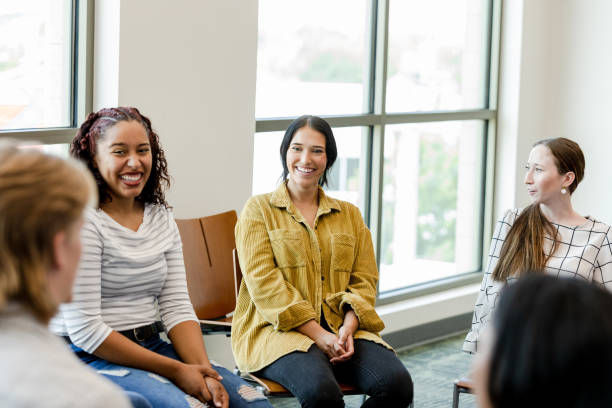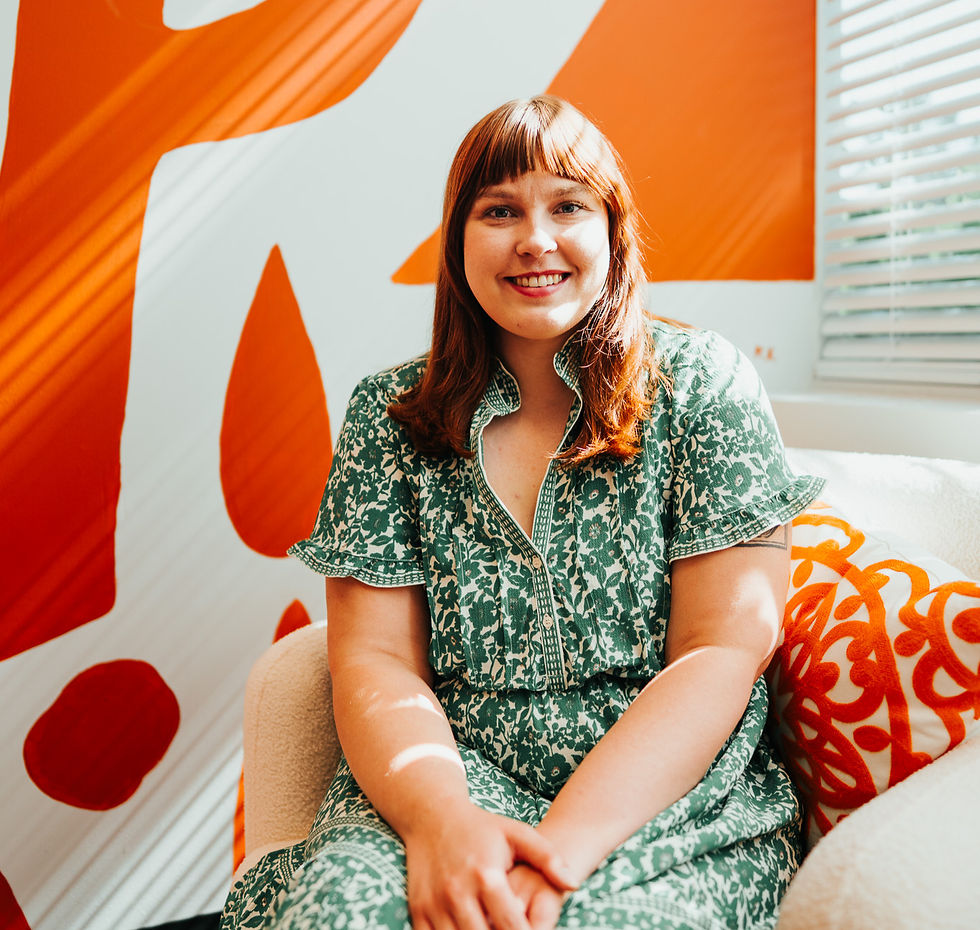Healing from Trauma and BPD: Women’s Mental Health Resources in Utah
- Sam

- Aug 15, 2025
- 5 min read
Written by The Emerge Treatment Team — Serving Draper, Utah
Women in Utah face unique mental health challenges—especially when living with trauma and Borderline Personality Disorder (BPD). Often misunderstood, deeply stigmatized, and emotionally overwhelming, these experiences can leave women feeling isolated, ashamed, and unsure where to turn. But there is hope. With the right support, women can heal, reclaim their identities, and build safe, meaningful lives.
This guide explores the intersection of trauma and BPD in women, why Utah women may be particularly impacted, and how mental health resources in Salt Lake City, Draper, and across Utah can help women recover, grow, and thrive.

What Is Borderline Personality Disorder (BPD)?
Borderline Personality Disorder (BPD) is a complex mental health condition characterized by intense emotional dysregulation, fear of abandonment, unstable relationships, and a fragmented sense of self.
Common signs of BPD include:
Intense, rapidly shifting emotions
Chronic feelings of emptiness
Fear of being abandoned—even when things are fine
Black-and-white thinking (idealizing then devaluing people)
Impulsive behaviors (spending, sex, substance use, etc.)
Self-harm or suicidal thoughts
Unstable self-image or identity confusion
For many women, these symptoms are rooted in early life trauma, invalidation, neglect, or complex relational wounds.
Trauma and BPD: A Complicated Connection
Research shows that up to 80% of people diagnosed with BPD have experienced some form of trauma, including:
Childhood abuse or neglect
Emotional invalidation or attachment wounds
Sexual violence or coercion
Chronic stress or instability at home
When trauma occurs early and repeatedly, it affects how the brain develops. For women, especially, the result is often:
Hypervigilance and emotional sensitivity
A deep fear of being “too much” or “not enough”
Difficulties trusting others or maintaining boundaries
A fractured sense of self-worth
BPD, in this context, can be understood not as a personal flaw—but as a protective response to overwhelming pain and abandonment. And healing is absolutely possible.
Why Utah Women May Struggle More
Utah has several cultural and systemic factors that make BPD and trauma recovery especially challenging for women:
1. High Perfectionism and Pressure to Appear “Okay”
Many Utah women grow up in environments that emphasize image, achievement, and emotional control. This can make it hard to express pain, anger, or need—emotions that are central to healing from BPD.
2. Religious or Cultural Invalidation
Women raised in high-demand or conservative communities may be taught to minimize their feelings, serve others first, or avoid conflict. This invalidation can reinforce the self-hatred and shame common in trauma survivors with BPD.
3. Limited Access to Specialized Care
While Salt Lake City and Draper are growing in resources, BPD-specific therapy is still underrepresented in Utah, and stigma often keeps women from reaching out.

Breaking the Stigma: BPD Is Treatable
Borderline Personality Disorder is often misunderstood—and unfairly labeled as untreatable or too intense. But that couldn’t be further from the truth. BPD doesn't define your future. Though it may be a long-term diagnosis, the symptoms can become manageable—and many women go on to live deeply fulfilling, connected, and stable lives with the right tools and support.
Women with BPD are:
Deeply sensitive and empathetic
Incredibly resilient, even if they don’t feel it
Often survivors of immense trauma
Deserving of love, healing, and safety
Therapy Approaches That Work for BPD and Trauma
1. Dialectical Behavior Therapy (DBT)
DBT is the gold standard for treating BPD and helps women:
Regulate overwhelming emotions
Reduce impulsive behaviors and self-harm
Improve interpersonal relationships
Build distress tolerance and mindfulness skills
DBT is widely available in Salt Lake City and some areas of Draper and Utah County.
2. Trauma-Informed Therapy
This includes approaches such as:
EMDR (Eye Movement Desensitization and Reprocessing): Helps the brain reprocess traumatic memories and reduce emotional reactivity.
Somatic Experiencing & Body-Based Therapy: Focuses on healing trauma stored in the body, helping women feel safe in their skin again.
Internal Family Systems (IFS): Helps women reconnect with their fragmented or exiled “parts” and develop a cohesive, compassionate sense of self.
3. Schema Therapy
Designed for personality disorders, this approach targets deeply rooted negative beliefs like “I’m unlovable” or “Everyone will leave me,” which are common in women with BPD.
What Healing Looks Like
Healing from trauma and BPD is not a straight line—but it is possible. Here’s what progress might look like:
Responding instead of reacting
Feeling safer in your body and relationships
Letting go of black-and-white thinking
Setting boundaries without guilt
Gaining clarity about your identity and needs
Replacing self-harm with self-compassion
Feeling worthy of love, even in hard moments
Therapy doesn’t erase the past—but it can radically transform the future.

Mental Health Resources for Women in Utah
If you or someone you love is struggling with trauma or BPD in Utah, here are resources specifically designed for women:
🌿 Emerge Treatment (Salt Lake City & Draper)
A trauma-informed outpatient and IOP program for women offering:
DBT, EMDR, and group therapy
Special focus on body image, identity, and anxiety
Programs that center around empowerment and healing
🧠 The Healing Group (Salt Lake City)
Focused on women’s mental health, including postpartum, trauma, and relational healing.
💛 Center for Women and Children in Crisis (Utah County)
Offers emergency and transitional support for women experiencing domestic trauma.
✨ University of Utah Health – Women’s Behavioral Health
Includes psychiatric and therapeutic care for women with complex mental health needs.
📱 Therapists Specializing in BPD and Trauma
Look for providers in your area who list:
Trauma-informed care
BPD or emotional regulation
Women’s mental health
DBT, EMDR, or IFS modalities
Use Psychology Today or TherapyDen with location filters like Salt Lake City, Draper, Sandy, or Provo.
Group Therapy and Peer Support
Group therapy can be especially powerful for women with trauma and BPD. It offers:
Relational healing in real time
Practicing new skills in a safe environment
Reducing shame and building connection
Witnessing others’ stories—and feeling less alone
Look for local options using terms such as:
Women’s trauma recovery groups
DBT skills groups for emotional regulation
BPD-specific support circles (in-person or virtual)
Tips for Starting the Healing Journey
1. Let Go of the Label
BPD is a descriptor, not a definition. It doesn’t mean you’re broken—it means you’re hurting in a way that makes sense, given what you’ve been through.
2. Start Slow
You don’t have to “fix everything” right away. Healing begins with showing up—messy, scared, or uncertain. That’s enough.
3. Prioritize Safety and Connection
Choose a therapist or program where you feel seen, heard, and emotionally safe. The relationship is more important than the method.
4. Find Your People
Whether it’s group therapy, a friend who “gets it,” or an online support space—healing happens in connection.
5. Practice Self-Compassion
You are not too much. You are not too sensitive. You are not unlovable. Healing begins when you believe you are worthy of care—especially your own.
You Deserve Support
If you are a woman in Utah struggling with the pain of trauma and the weight of BPD, you are not alone. There is nothing shameful about seeking help. In fact, it’s the most courageous thing you can do.
Utah is home to growing, inclusive, and empowering mental health resources for women. Whether you’re in Salt Lake City, Draper, Utah County, or somewhere in between, you deserve a therapist and a healing community that honors your story and supports your growth.

Ready to Begin?
You don’t have to have it all figured out. You don’t have to hit rock bottom to deserve therapy. You simply have to start.
Take the next step: Schedule a free consultation with a women’s trauma therapist in Utah who understands what you’re going through—and is ready to walk with you.
%20(1).png)


